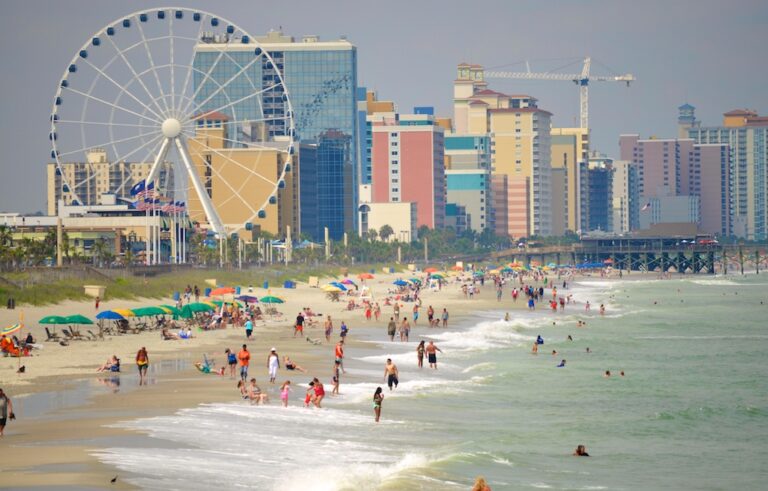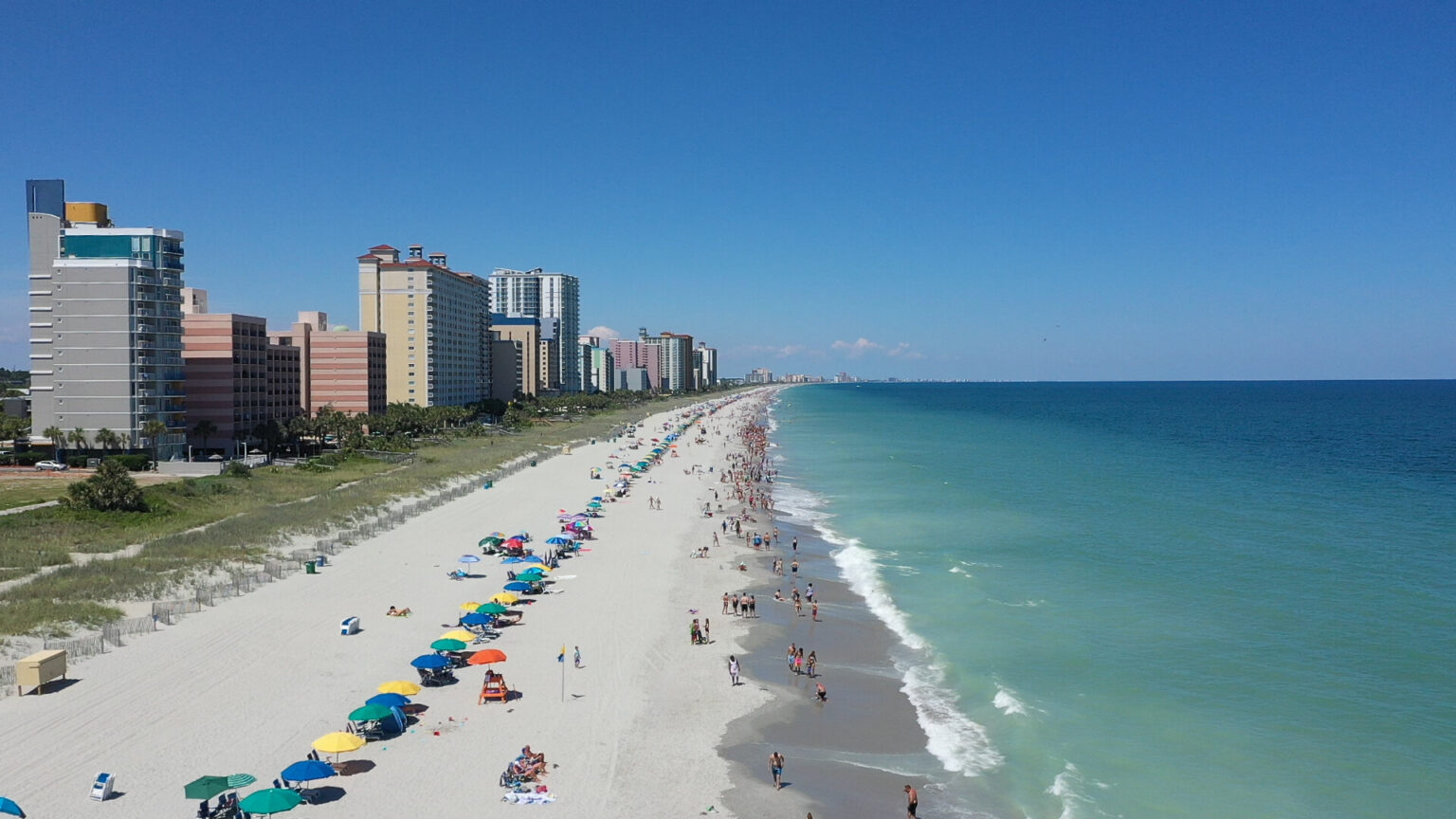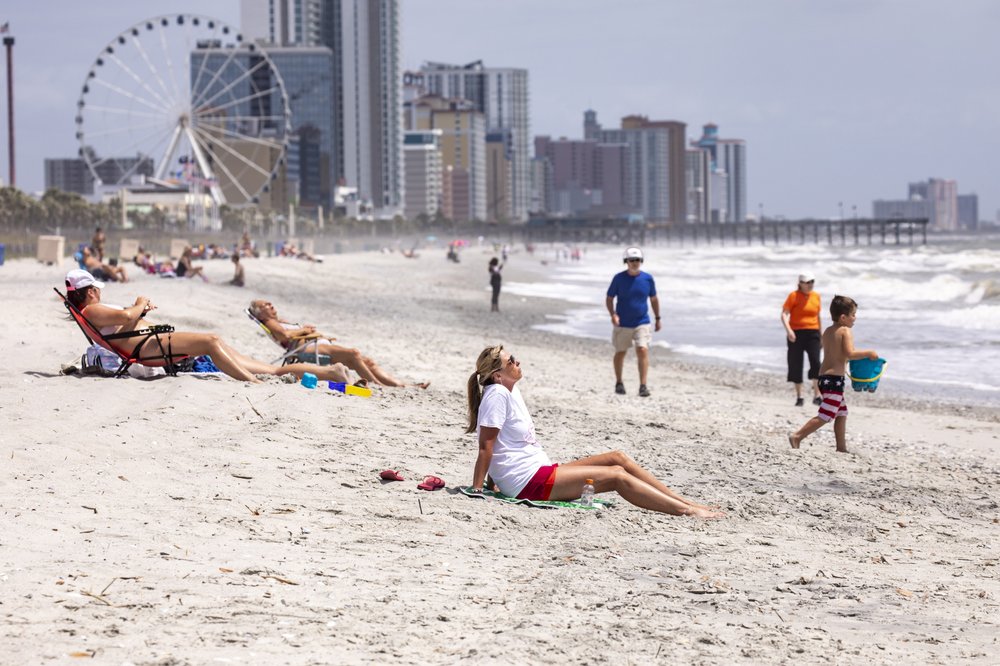MYRTLE BEACH SERVICES
SERVICES



History Of Myrtle Beach South Carolina
A Journey Through Time: The History of Myrtle Beach, South Carolina
Nestled along the picturesque coastline of South Carolina, Myrtle Beach has grown from humble beginnings to become one of the East Coast’s premier vacation destinations. Its rich history, dating back to the earliest days of European settlement in America, is a captivating tale of growth, transformation, and resilience. Join us as we take a journey through time to explore the fascinating history of Myrtle Beach, from its colonial origins to the vibrant coastal city we know today.
Colonial Roots
The story of Myrtle Beach begins in the late 17th century when English colonists first set foot on the shores of what would become South Carolina. These early settlers encountered a region teeming with natural beauty, including lush forests, fertile farmland, and pristine beaches. However, it wasn’t until 1729, when South Carolina officially became a crown colony, that the area began to see sustained European settlement.
The 19th Century
Throughout the 18th and 19th centuries, Myrtle Beach remained primarily a quiet coastal town, dependent on agriculture and fishing. The construction of the Conway and Seashore Railroad in the late 19th century marked a turning point, making the area more accessible and spurring economic growth. However, it wasn’t until the 20th century that Myrtle Beach truly began to evolve into the bustling resort city we know today.
The Birth of Tourism
In the early 1900s, Myrtle Beach caught the attention of developers and entrepreneurs who recognized its potential as a vacation destination. Oceanfront hotels, amusement parks, and boardwalks began to spring up, drawing visitors from all over the region. The 1930s saw the opening of the iconic Ocean Forest Hotel, a symbol of Myrtle Beach’s rise as a tourist hotspot.
World War II and the Postwar Boom
During World War II, Myrtle Beach played a crucial role as a training ground for military personnel. The construction of an airbase and the influx of servicemen brought significant economic activity to the area. After the war, Myrtle Beach experienced a postwar boom, with the 1950s and 1960s witnessing unprecedented growth in tourism and development. The city’s reputation as the “Golf Capital of the World” began to take shape during this time, as numerous golf courses were established.
The Contemporary Myrtle Beach
The latter half of the 20th century and into the 21st century saw Myrtle Beach evolve into a year-round destination. Its pristine beaches, golf courses, water parks, and a wide range of entertainment options make it a favorite spot for families, retirees, and vacationers. The city’s economy is largely driven by tourism, and it hosts millions of visitors annually.
Myrtle Beach has also become known for its cultural events, such as the Carolina Country Music Festival and the Myrtle Beach Bike Week, which attract music lovers and motorcycle enthusiasts from around the country.
From its humble colonial origins to its modern-day status as a vibrant tourist hub, Myrtle Beach, South Carolina, has undergone a remarkable transformation. Its history is a testament to the resilience and adaptability of a coastal community that has thrived and flourished over the centuries. As Myrtle Beach continues to evolve, it remains a beloved destination for those seeking sun, sand, and southern hospitality along the beautiful shores of South Carolina.
Claim Your Free Listing
If you’re a business providing products or services to homeowners in South Carolina, be sure to claim your free listing now. Our online directory is the most effective tool to reach homeowners who need what you have to offer. Trust us, your competition’s already done it. They know: if you’re not online, you’re hard to find. Boost your business credibility with customers. Feel proud of the professional image you create for your business.